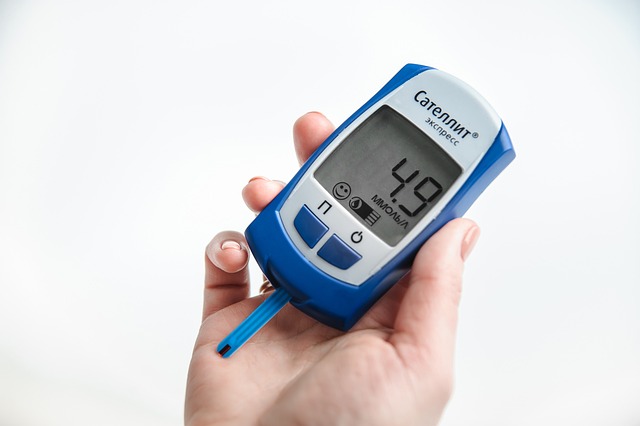A ketogenic diet is possible, even with type 2 diabetes and can help maintain a healthy blood sugar level
Diabetes is a disorder of carbohydrate metabolism, so it makes sense that many people look to low-carbohydrate diets to manage their diabetes. Cutting back on carbohydrates can lower blood sugar and improve insulin resistance in people with type 2 diabetes.
Now: is low-carb is good, is very low-carb better?
A type of diet called a very low-carbohydrate ketogenic diet has been a recent focus of people with type 2 diabetes, along with medical professionals and researchers. Although the ketogenic diet was originally developed to treat epilepsy and is high in fat, it may actually help with diabetes management and weight loss.
This is what you should know about what a ketogenic diet is, how it can affect diabetes and weight, and how to follow one if you decide that a ketogenic diet may be right for you. The following steps can help you conquer diabetes with a ketogenic diet.
1 . Learn the basics.
A ketogenic diet is a way of eating that puts your body into a metabolic state called ketosis. To get there, you eat very few carbohydrates. You might eat only 20 to 50 grams of carbs per day, or the amount in 2 slices of bread, 1 cup of oatmeal, or ¾ cup of cooked pasta. This amount is about 10 to 20% of the amount of carbohydrates that most people have in a day.
Going into ketosis means a couple of things. First, when you are in ketosis, your body switches its main source of fuel. While most people use carbohydrates for most of their energy, people in ketosis burn more fat. Supports of ketogenic diets say that this helps with weight loss, although the real weight loss benefits of ketosis may come only if you eat fewer calories.
Another aspect of ketosis is that you are far less likely to have blood sugar spikes since you are eating very few carbohydrates. Here is what happens. When you eat foods with carbohydrates, your body breaks down the carbs into sugar and releases them into your blood. This raises your blood sugar. Cut back on carbs, as you do on a ketogenic diet, and you will be cutting back on the amount of sugar entering your bloodstream.
2. Do your research.
Theories are nice, but does a ketogenic diet work in treating diabetes? Research suggests that it just might help! Clinical trials have found that people with diabetes who were overweight and who followed a ketogenic diet for 16 to 24 weeks lost weight, even when they reported consuming more calories than participants in a higher-carb comparison group.
Also important for diabetes is that the ketogenic diet groups lowered their hemoglobin A1C levels, which shows they had lower average blood glucose levels on the keto diet. [1, 2] Some results showed lower blood pressure, total cholesterol, and triglycerides. Still, it is important to remember that these are short-term studies and the long-term effects are not certain.
3. Weigh your options.
Is a ketogenic diet the right way for you to conquer diabetes? This is a personal decision that should not only consider whether the diet works for the first few months. Also consider whether you can follow it now and for the long-term, and how safe and effective ketosis is for the years to come.
- Can you follow the plan for a few days? The diet prohibits or restricts a lot of foods. If you love fruit, cereal, yogurt, oatmeal, and beans, this diet may not be for you, since these foods, nutritious though they are, are almost eliminated in ketosis. Ketosis may also be tough if you are not crazy about meat, poultry, fish, and eggs, since these zero-carb foods may be common.
- Can you follow the plan for a while? Giving up a few foods for a few days is one thing, but you may get bored or have cravings as the weeks and months wear on, and want to eat more carbs. You may also have trouble sticking to your diet at special occasions such as restaurant meals and parties.
- Is a keto diet safe in the long term? It may be, but we just do not know. There could eventually be liver or kidney harm due to too much protein. There is also the chance that a keto diet could spell trouble for your heart if includes a lot of red meat and butter, and not much fiber.
- Are you concerned about hypoglycemia, or low blood sugar? Hypoglycemia is not uncommon when starting a ketogenic diet.
You should also consider how your diet fits into your diabetes management plan. Most people with type 2 diabetes have a self-management plan that includes taking medications, monitoring blood glucose, exercising, and following a special diet. Are you ready to accept the possibility that what you eat can influence the course of diabetes?
4. Get the foods you need.
If you are ready to get started, you need to know what foods to keep in your kitchen and which to choose when ordering at restaurants. If you choose a keto diet, you will be having about:
- 5 to 10% of calories from carbohydrates.
- 70 to 80% of calories from fat.
- 10 to 25% of calories from protein.
Most of the foods you eat will be zero-carb and very-low-carb foods. Non-starchy vegetables should also be present at most meals.
Also check which foods and ingredients to limit or avoid if you want to stay in ketosis. These include both nutritious and low-nutrient foods that are moderate or high in carbs.
Now that you know what to eat, you can start to make your plan to conquer diabetes with a ketogenic diet.
5. Start conquering diabetes.
Your ketogenic diet is only one part of a holistic plan to conquer diabetes. Following a well-rounded treatment plan can give you the best chance at lowering blood sugar, preventing complications, and possibly reversing insulin resistance. Along with a careful diet, your doctor may recommend the following self-management behaviors.
- Taking any prescription medications carefully.
- Monitoring your blood sugar one or more times daily.
- Exercising regularly.
Before starting, you should talk to your doctor about whether ketosis is right for you and whether it may affect your medications.
As you weigh your options and commit to lowering blood sugar, Lark Diabetes Care can provide support for a healthy diet and the other choices you make to conquer diabetes. Find out more about this personal coach!
References
- Westman EC, Yancy WS Jr, Mavropoulos JC, Marquart M, McDuffie JR. The effect of a low-carbohydrate, ketogenic diet versus a low-glycemic index diet on glycemic control in type 2 diabetes mellitus. Nutrition & Metabolism. 2008; 5:36 https://doi.org/10.1186/1743-7075-5-36. https://nutritionandmetabolism.biomedcentral.com/articles/10.1186/1743-7075-5-36?wptouch_preview_theme=enabled
- Yancy WS Jr, Foy M, Chalecki AM, Vernon MC, Westman EC. A low-carbohydrate, ketogenic diet to treat type 2 diabetes. Nutr Metab (Lond). 2005;2:34. Published 2005 Dec 1. doi:10.1186/1743-7075-2-34



.jpg)








.webp)








